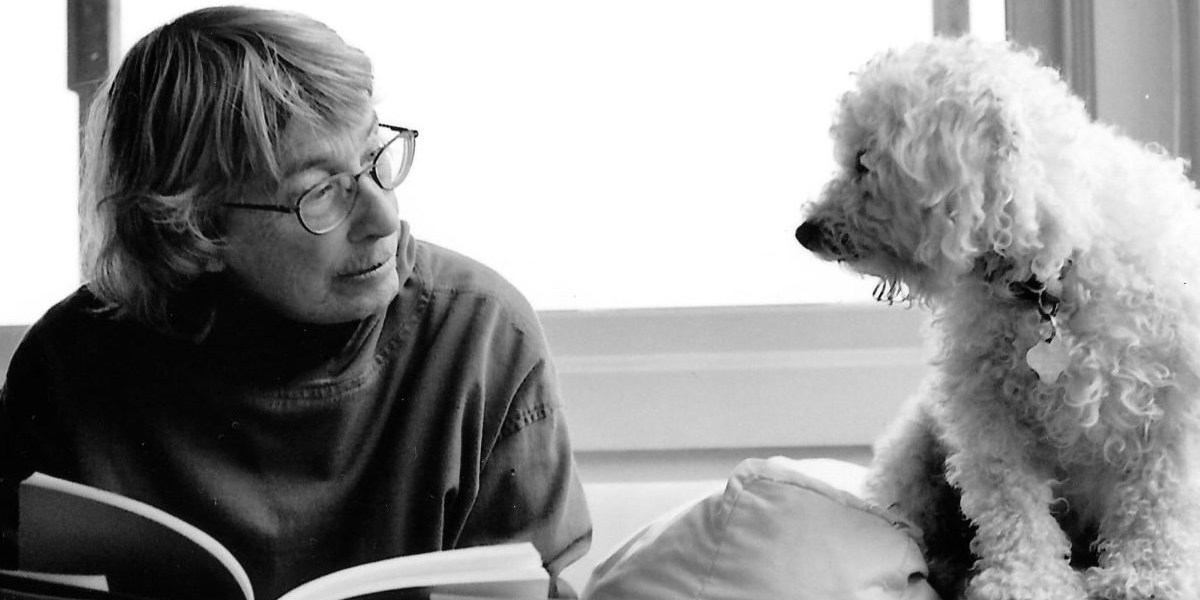The poet Mary Oliver, who has died at the age of 83, wrote some of the poems I cherish most. Born in 1935 in a small Ohio town, she often found escape from a hard childhood and an abusive father by walking in the woods. “It was a very bad childhood for everybody, every member of the household, not just myself I think. And I escaped it, barely,” she later said. But I got saved by poetry. And I got saved by the beauty of the world.”
That experience was distilled in one of her finest poems, The Journey:
One day you finally knew
what you had to do, and began,
though the voices around you
kept shouting
their bad advice –
though the whole house
began to tremble
and you felt the old tug
at your ankles.
“Mend my life!”
each voice cried.
But you didn’t stop.
You knew what you had to do,
though the wind pried
with its stiff fingers
at the very foundations,
though their melancholy
was terrible.
It was already late
enough, and a wild night,
and the road full of fallen
branches and stones.
But little by little,
as you left their voices behind,
the stars began to burn
through the sheets of clouds,
and there was a new voice
which you slowly
recognized as your own,
that kept you company
as you strode deeper and deeper
into the world,
determined to do
the only thing you could do–
determined to save
the only life you could save.

Following in the footsteps of Whitman and Thoreau, Oliver’s poetry is grounded in her close observation of the natural world and a deep sense of being in the world as a kind of spiritual experience, as she wrote in A Summer Day:
I don’t know exactly what a prayer is.
I do know how to pay attention, how to fall down
into the grass, how to kneel down in the grass,
how to be idle and blessed, how to stroll through the fields,
which is what I have been doing all day.
And she was driven to contemplate the harm humans had caused to the world:
I think it is very very dangerous for our future generations, those of us who believe that the world is not only necessary to us in its pristine state, but it is in itself an act of some kind of spiritual thing. I said once, and I think this is true, the world did not have to be beautiful to work. But it is. What does that mean?

Despite being one of the most popular and garlanded of modern American poets (in 1984 her collection American Primitive won the Pulitzer Prize), Oliver has often not been taken seriously as a writer. But for me she was one of the best.
– Wild Geese
You do not have to be good.
You do not have to walk on your knees
for a hundred miles through the desert repenting.
You only have to let the soft animal of your body
love what it loves.
Tell me about despair, yours, and I will tell you mine.
Meanwhile the world goes on.
Meanwhile the sun and the clear pebbles of the rain
are moving across the landscapes,
over the prairies and the deep trees,
the mountains and the rivers.
Meanwhile the wild geese, high in the clean blue air,
are heading home again.
Whoever you are, no matter how lonely,
the world offers itself to your imagination,
calls to you like the wild geese, harsh and exciting
over and over announcing your place
in the family of things.

Who made the world?
– The Summer Day
Who made the swan, and the black bear?
Who made the grasshopper?
This grasshopper, I mean—
the one who has flung herself out of the grass,
the one who is eating sugar out of my hand,
who is moving her jaws back and forth instead of up and down—
who is gazing around with her enormous and complicated eyes.
Now she lifts her pale forearms and thoroughly washes her face.
Now she snaps her wings open, and floats away.
I don’t know exactly what a prayer is.
I do know how to pay attention, how to fall down
into the grass, how to kneel down in the grass,
how to be idle and blessed, how to stroll through the fields,
which is what I have been doing all day.
Tell me, what else should I have done?
Doesn’t everything die at last, and too soon?
Tell me, what is it you plan to do
with your one wild and precious life?

When death comes
– When Death Comes
like the hungry bear in autumn;
when death comes and takes all the bright coins from his purse
to buy me, and snaps his purse shut;
when death comes
like the measle pox;
when death comes
like an iceberg between the shoulder blades,
I want to step through the door full of curiosity, wondering:
what is it going to be like, that cottage of darkness?
And therefore I look upon everything
as a brotherhood and a sisterhood,
and I look upon time as no more than an idea,
and I consider eternity as another possibility,
and I think of each life as a flower, as common
as a field daisy, and as singular,
and each name a comfortable music in the mouth
tending as all music does, toward silence,
and each body a lion of courage, and something
precious to the earth.
When it’s over, I want to say: all my life
I was a bride married to amazement.
I was a bridegroom, taking the world into my arms.
When it’s over, I don’t want to wonder
if I have made of my life something particular, and real.
I don’t want to find myself sighing and frightened
or full of argument.
I don’t want to end up simply having visited this world.











